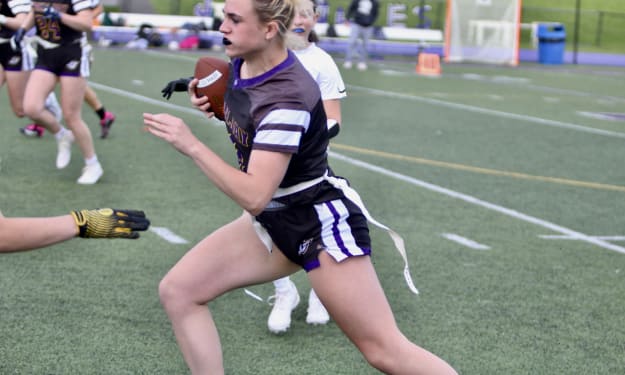Miracle of 1980
This was a major upset in sports history
The final words of the broadcast that was heard worldwide was "do you believe in miracles?" Here in the United States at Lake Placid, New York the men's hockey team would try to overcome the emotional beating took from the Soviets in Madison Square Garden three days before the Lake Placid Games began, the Soviets routed the U.S. team 10-3 in an exhibition game at Madison Square Garden in New York City.
Why was this game in particular so important? Why would this be classified as a miracle? Let's look at the Olympic rules that said if you went professional you couldn't participate in the Olympics. Many college players in the US didn't have four to six years to wait before going pro. Let's look at why this was miracle.
One of the reasons why people considered this a miracle was because of the following statement. The so-called Miracle on Ice was more than just an Olympic upset; to many Americans, it was an ideological victory in the Cold War as meaningful as the Berlin Airlift or the Apollo moon landing. Also, occurring about eleven years prior to the complete fall of the Soviet Union, this victory was more than just a hockey victory, it was a victory for America. This win helped bring back hope into the hearts of the Americans, which they were lacking during the 1970s.
Let's look at other areas of the Olympics and that is the number of countries who actually boycotted the games during the summer of that year. It was feared that Russia would be one of them.
Let's look at the political make up at the time. The Iranian Hostage Crisis was still going strong with the Carter Administration not being able to negotiate this to an easy end. Also, Russia invaded Afghanistan and the Rebels, led by Osama Bin Laden was fight them. The rebels were trained and armed by the United States, which that decision would come back to haunt us thirty-one years later.
In 1980, the United States led a boycott of the Summer Olympic Games in Moscow to protest the late 1979 Soviet invasion of Afghanistan. In total, 65 nations refused to participate in the games, whereas 80 countries sent athletes to compete.
When the two teams lined up and you looked at the players on the US Side you had amateurs and college kids. Their coach was Herb Brooks. Who was Herb and why did he matter? In 1960, he was the last man cut from the US Men's Hockey Team the last to medal before 1980. The 1960 medal was called the "forgotten miracle." Herb was not a players coach. He had a job to do and it was going to get done. What was Herb like?
Brooks was not a players' coach.
He worked his players relentlessly, wearing on them, making them hate him. It was simply his identity as a coach, and one that he would embrace at all his coaching stops. It's no surprise that Brooks was good friends with Bobby Knight. Like Knight, Brooks was a military-style leader. Players had to do things his way. All the time. In one famous incident, he was unhappy with the way his team played during an exhibition against the Norwegian national team. He warned his players that if they didn't work during the game they would work after it. Still unhappy after the final period, Brooks marched the young men onto the ice and forced them to skate suicides as the arena slowly emptied. Finally, as the players were on the brink of collapse, he let them off the ice. His message was clear. Work or go home.
In part, he would tell people later, he wanted the players from the East and the players from the Midwest to hate him more than they hated each other. There was a natural rivalry between the two groups. Fourteen of the players were from either Minnesota or Wisconsin, and 9 of those had played at the University of Minnesota. Four of the players were from in and around the Boston area and had played at Boston University.
In 1976 a vicious fight had broken out between Minnesota and Boston University during the semifinals of the NCAA hockey championship. The fight was so heated that it stopped the game for 30 minutes. Five of the players on that 1980 squad had been on the ice that day, throwing punches at each other. Brooks had another reason for riding his players, for constantly pushing them to the brink of throwing down their sticks and leaving the team for good. The Soviet team was in awesome physical condition, one of the reasons the Soviets seemed almost super-human to hockey fans. Brooks would drive, exhort and punish his young collegians until they could skate with the Soviets for three periods. The Americans' conditioning would be their secret weapon.
Brooks the hard-driving disciplinarian had another side. After the Miracle, he left the bench as soon as he could so that his players could have the spotlight to themselves. Brooks instead went and celebrated in private while his players did so on the ice. The TV cameras captured only the back of his brown sport coat as he left the bench. "No words necessary, just pictures," Al Michaels intoned as the camera quickly cut back to shots of the players' jubilation on the ice.
Brooks would later call the year he spent coaching the 1980 Olympic team his loneliest in hockey. He put on the mask of a ruthless tyrant because that was what the team needed. As Mike Eruzione later said, "I firmly believe that he loved our hockey team, but we didn't know it." I remember watching the movie and he sacrificed a lot to be the coach. It was family time, school plays, Christmas etc. There was a rigorous work out and travel schedule for players and coach alike. After Herb had secured the coaching position, he showed up for tryouts with his list of players he wanted on the ice. That ruffled feathers.
Some parts of this article was taken from SBNation
About the Creator
Lawrence Edward Hinchee
I am a new author. I wrote my memoir Silent Cries and it is available on Amazon.com. I am new to writing and most of my writing has been for academia. I possess an MBA from Regis University in Denver, CO. I reside in Roanoke, VA.






Comments
There are no comments for this story
Be the first to respond and start the conversation.